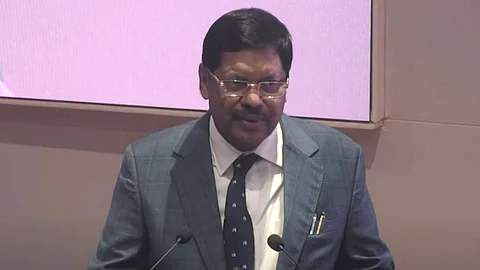
- Latest Legal News
- News
- Dealstreet
- Viewpoint
- Columns
- Interviews
- Law School
- Legal Jobs
- हिंदी
- ಕನ್ನಡ

Chief Justice of India (CJI) BR Gavai defended his August 2024 judgment in which he had batted for application of creamy layer principle to Scheduled Castes (SCs) so that the well placed among SCs do not get the benefits of reservation.